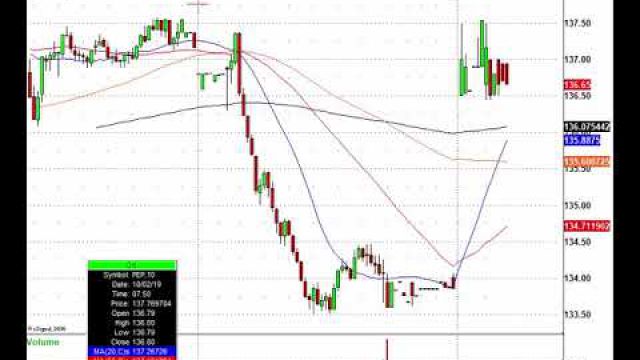Category: Uncategorized
- Published: 29 November -0001
News Release: Anti-Cancer Responses in Metastatic Melanoma Patients Linked to Immune Activation by MDX-010 Published in the 'Proceedings of the National Academy of Sciences'(PNAS)
Medarex, Inc. (Nasdaq: MEDX) today announced the publication of positive results from the initial cohort of 14 patients in an open-label MDX-010 Phase II melanoma study in the Online Early Edition of the 'Proceedings of the National Academy of Sciences'(www.pnas.org) for the week of June 23, 2003. In the study, an objective response rate of 21%, which included two complete tumor responses, was observed in the initial cohort of 14 patients with metastatic melanoma. The trial was conducted by Steven A. Rosenberg, M.D., Ph.D., Chief of Surgery at the National Cancer Institute (NCI), and was the first human study designed to assess the potential anti-tumor activity of MDX- 010, a fully human antibody that blocks CTLA-4, after repeated dosing in combination with a peptide vaccine based on gp100 melanoma-associated antigens. Previous studies of this vaccine given alone without the antibody in the treatment of metastatic melanoma demonstrated an objective response rate of approximately 2%. The data also indicates that MDX-010 may be able to induce a reversible state of autoimmunity, with an apparent correlation between the development of drug-related autoimmunity and durable clinical responses. Six patients reported drug-related autoimmune adverse events (dermatitis, colitis, hepatitis and hypophysitis), all of whom responded to medical therapy. Of the patients who experienced these Autoimmune Breakthrough Events (ABEs), 50% also experienced anti-tumor response. No patient experienced an anti-tumor response without experiencing some ABE. The observations suggest that these drug- related adverse events, or Autoimmune Breakthrough Events, may be associated with the induction of anti-cancer immune responses.
In the initial cohort of 14 patients with metastatic disease, all had undergone surgical therapy for the primary lesion and received a regimen of 3.0 mg/kg of MDX-010 once every three weeks in combination with two peptides from the gp100 melanoma-associated antigen, gp100:209-217(210M) and gp100:280- 288(288V). Of these, two patients achieved complete responses, per the RECIST (Response Evaluation Criteria in Solid Tumors) definition. One of these two patients experienced complete resolution of a 0.5 cm brain lesion, two subcutaneous nodules and 31 lung metastases. The second of these two patients experienced complete resolution of an abdominal subcutaneous nodule and a solitary lung lesion. Prior to treatment with the MDX-010 antibody and gp100 peptide vaccine, both patients had received chemotherapy and undergone surgical therapy, and one patient had also received previous immunotherapy. A third patient who had received previous immunotherapy achieved a partial response with tumor shrinkage of a solitary lung lesion, lasting over 10 months after two treatment cycles. Mixed responses were observed in two additional patients.
These results were recently presented at the 2003 annual meeting of the American Society of Clinical Oncology (ASCO 2003 Abstract #3424). The ongoing Phase II trial is expected to enroll up to 55 patients.
'We are excited by these significant anti-tumor responses in metastatic disease and by the apparent correlation of tumor responses with the advent of Autoimmune Breakthrough Events,'said Geoffrey M. Nichol, M.D., Senior Vice President of Product Development at Medarex. 'We believe that these preliminary results demonstrate the potential of MDX-010 to break tolerance to self in a predictable and reversible fashion and that during this temporary autoimmune state, useful anti-tumor effects can be seen. The ABEs themselves are markedly less troublesome than the adverse event profiles observed in the current forms of standard melanoma treatment.'
'We believe that MDX-010 has the potential to become a significant treatment for melanoma and other serious diseases,'said Donald L. Drakeman, President and CEO of Medarex. 'We are greatly encouraged that some patients with metastatic disease still appear cancer-free, and we look forward to additional data later in the year that may further demonstrate the benefits of MDX-010 in patients.'
MDX-010 is currently in multiple Phase II clinical trials to test the product for use in patients with melanoma and prostate cancer. MDX-010 is also being tested in a Phase I clinical trial for HIV.
About MDX-010 and Cancer
MDX-010 is a fully human antibody against human CTLA-4, a molecule on T cells that is responsible for suppressing the immune response. Studies in mice have demonstrated that an antibody against CTLA-4 has the potential to strengthen the adaptive immune response against certain tumors, leading to the reduction of and, in some cases, the elimination of well-established tumors. In preclinical research, MDX-010 has been shown to enhance immune responses and prevent tumor growth.
In recent studies conducted by Medarex, Phase I/II data indicated that a single 3.0 mg/kg dose of MDX-010 alone may induce tumor regression in some patients with metastatic melanoma and hormone refractory prostate cancer. Of the 17 patients in the metastatic melanoma trial, objective tumor responses per the RECIST (Response Evaluation Criteria in Solid Tumor) definition were observed in two patients. A minor response was observed in another patient. Stable disease and additional mixed responses were also seen. Of the 14 patients in the hormone refractory prostate cancer trial, two of seven chemo- naive patients experienced a greater than 50% reduction in serum PSA measurement, and symptomatic improvement was observed in one patient experiencing bone pain. The data from these two Phase I/II studies indicated that the product was generally well-tolerated. Across both studies, mild to moderate adverse events, including a rash or itching were experienced by 11 (35%) patients. Further signs of immunologic activity directed at tumors included tumor necrosis, inflammatory reactions at tumor sites and immune mediated rash.
According to the American Cancer Society, cancer of the skin is the most common of all cancers. Melanoma accounts for about 4% of skin cancer cases, but it causes about 79% of skin cancer deaths. The American Cancer Society estimates that in 2003 there will be about 54,200 new cases of melanoma in the United States, and about 7,600 people will die of this disease.
According to the American Cancer Society, other than skin cancer, prostate cancer is the most common type of cancer found in American men and is the second leading cause of cancer deaths in men, exceeded only by lung cancer. The American Cancer Society estimates that in 2003 there will be about 220,900 new cases of prostate cancer in the United States, and about 28,900 men will die of the disease.
About MDX-010 and HIV
CTLA-4 is believed to be an important molecule in regulating an immune response and is believed to be responsible for suppressing the defensive activities of these T cells against disease or infectious agents. In HIV- infected patients, where T cell response is poor in controlling the virus, excess amounts of CTLA-4 have been found on the T cells; this overexpression of CTLA-4 may facilitate susceptibility to the HIV virus and contribute to the immune suppression found in AIDS patients. Pre-clinical studies have shown that blocking CTLA-4 with an antibody can lead to potent immune responses to various types of viruses, bacteria and cancer. We believe that by blocking the suppressive activity of CTLA-4 in HIV-infected patients, MDX-010 may enhance an anti-HIV immune response and the ability to control HIV.
According to the Centers for Disease Control, at the end of 2001 there were 160,000 people in the U.S. living with HIV infection and 342,000 living with AIDS.
Medarex is a biopharmaceutical company focused on the discovery and development of therapeutics to treat life-threatening and debilitating diseases. Medarex's UltiMAb Human Antibody Development System(SM) is a unique combination of human antibody technologies that the Company believes enables the rapid creation and development of fully human antibodies to a wide range of potential disease targets for therapeutic antibody products, including products for the treatment of cancer, inflammation, autoimmune and infectious diseases. Medarex's product pipeline is based on a variety of therapeutic antibody products developed through the use of its UltiMAb technology. Medarex creates and develops fully human antibodies for itself and others, offering a full range of antibody related capabilities, including pre-clinical and clinical development supported by cGMP manufacturing services. For more information about Medarex, visit its Web site at www.medarex.com.
Except for the historical information presented herein, matters discussed herein may constitute forward-looking statements that are subject to certain risks and uncertainties that could cause actual results to differ materially from any future results, performance or achievements expressed or implied by such statements. Statements that are not historical facts, including statements preceded by, followed by, or that include the words 'potential'; 'believes'; 'anticipates'; 'intends'; 'plans'; 'expects'; 'estimates'; 'could'; or similar statements are forward-looking statements. Medarex disclaims, however, any intent or obligation to update these forward-looking statements. Risks and uncertainties include risks associated with product discovery and development as well as risks detailed from time to time in Medarex's public disclosure filings with the U.S. Securities and Exchange Commission (SEC), including its Annual Report on Form 10-K for the fiscal year ended December 31, 2002 and subsequent Quarterly Reports on Form 10-Q. There can be no assurance that such development efforts will succeed, that such products will receive required regulatory clearance or that, even if such regulatory clearance were received, such products would ultimately achieve commercial success. Copies of Medarex's public disclosure filings are available from its investor relations department.
Medarex(R), the Medarex logo, UltiMAb(SM) and UltiMAb Human Antibody Development System(SM) are trademarks and service marks of Medarex, Inc. All rights are reserved.
SOURCE Medarex, Inc.
Laura S. Choi, Investor Relations, +1-609-430-2880, x2216, or Jean Mantuano, Corporate Communications (media), +1-609-430-2880, x2221
http://www.medarex.com
WEBSITE This email address is being protected from spambots. You need JavaScript enabled to view it.


















